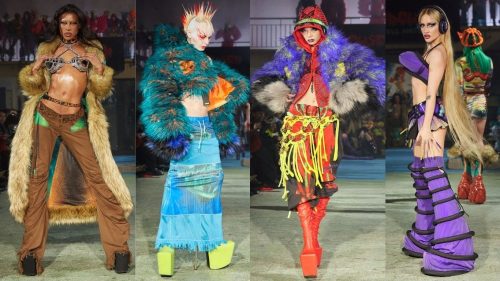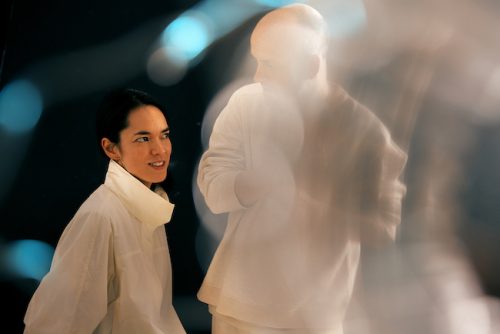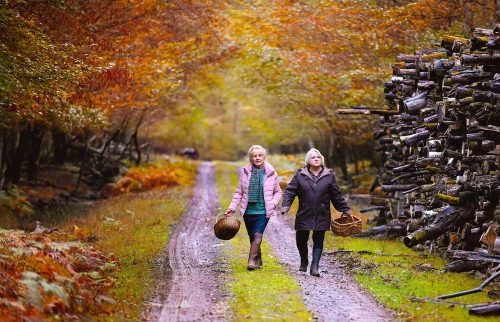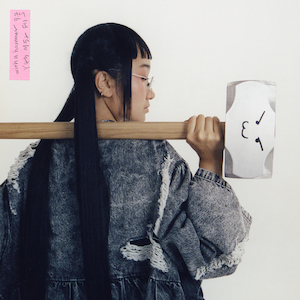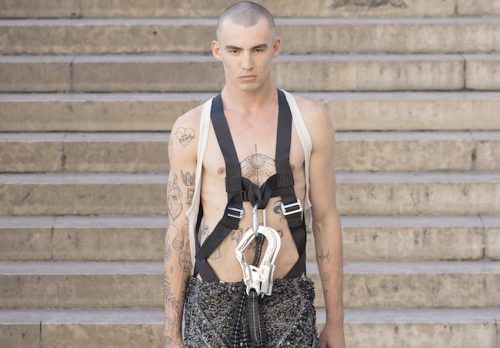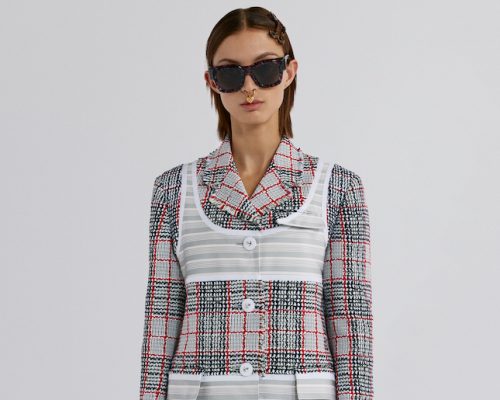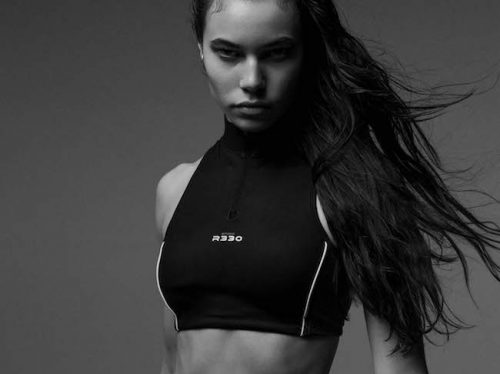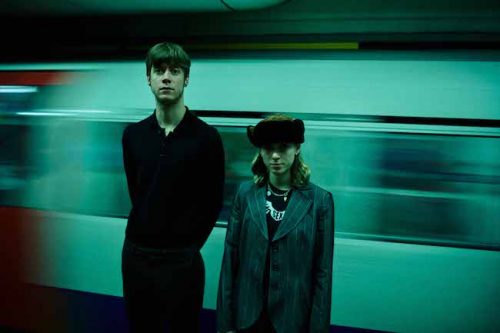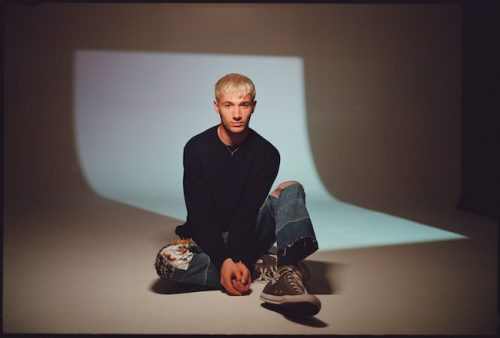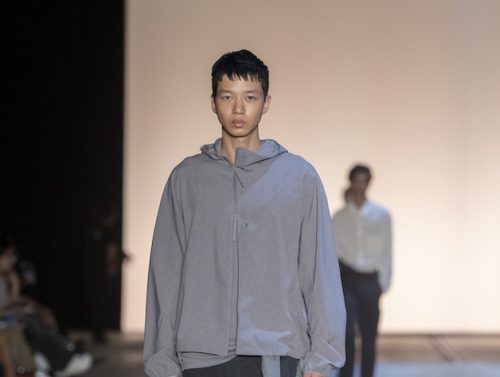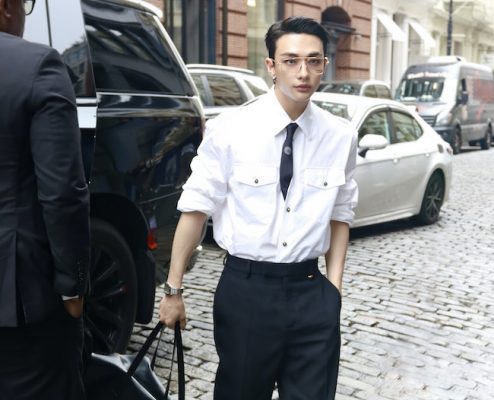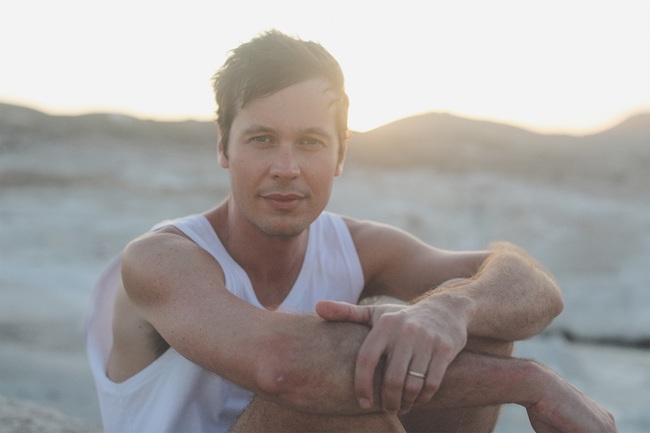
-Nice to meet you Mr. Green. This is the first time we are interviewing you. Here in Tokyo, we have been experiencing high temperatures of 37 degree Celsius. However, listening to your album, “PURPLE NOON”, lets me forget the humidity.
If there is anything you would like to share about making or the release of you your album, please feel free to share us. We are very interested in your work and will be delighted to know more about you and your work process.
Ernest Greene : My previous record “Mister Mellow” was made mainly with samples – so I knew I wanted to try something different this time around. So I did most of the songwriting at a keyboard or piano and wrote most of the melodies and lyrics before getting into the production. From the beginning, I had a pretty strong idea about the vibe I was going for (which is rare for me – as it normally involves a lot of experimentation). Overall, this made the process of making the album a lot easier and quicker.
-The album cover of “PURPLE NOON” has a very enthralling image of you and the sea. In your previous album, “Life of Leisure”, you also used an image of the sea. Personally, I feel that there is a sense of nostalgic summer charm to the music by Washed Out. Especially in the song “Game of Chance” in the recent album. What does the summer season mean to you?
Ernest Greene : I’ve always been inspired by the sea – and for me it represents a unique form of escapism. Having never lived near the sea it always feels quite exotic being at the beach and it often goes hand in hand with some sort of vacation or leisure time. I feel like I’m instantly relaxed and more open in general which pairs nicely with the aesthetic of my music.
-What was the starting concept or image you were going for in “PURPLE NOON”?
Ernest Greene : One of my earliest influences was the photographer Herb Ritts. His photos have the lush quality about them and are really sexy and glamorous. I wanted to make music that felt like that.
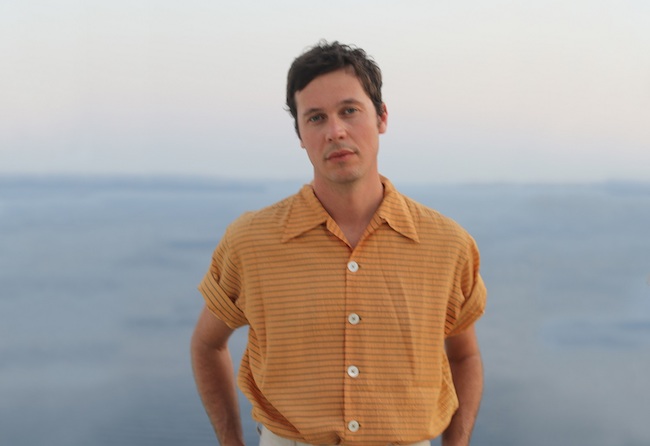
-There was a clear division between your upbeat and downbeat music in “Mister Mellow”. On the other hand, “PURPLE NOON” is smooth, mellow and ambient. In the production and making, what were things you changed from your previous albums? Was there anything new you tried out?
Ernest Greene : The main difference for me between Mister Mellow and Purple Noon is the songwriting aspect. PN is much more focused on the “songs” while MM was more about sonic experimentation. The newest aspect of the production for me had mostly to do with sound selection and mix clarity. I wanted a really bright, open, and powerful mix – so it became mainly an exercise in restraint. Having less pieces in the mix opens up more space – which is really important when it comes to sonic clarity.
-You mentioned that 80s pop, Sade and R&B was the inspiration of this album. However, in your previous music, there were hints of a similar style. What lead you to focus on such smooth 80s music? Why did you choose that category of music?
Ernest Greene : It sort of goes back to the Herb Ritts images. A lot of 80’s pop and R&B (including Sade) bring up the same connotations as his photography. Smooth, sexy. Those styles also worked well with the lyrics and melodies I was writing – filled with drama about lost love, etc.
-Ben H. Allen did the mixing for this album. You have worked with him a couple of times. What were the ideas you exchanged. Was there anything in particular you both discussed about?
Ernest Greene : We talked about some of the 80’s pop and R&B influences but I wasn’t really interested in making a “throwback album”. I wanted to do that style but in a more contemporary way. So there was just as much sharing of new music as it was old.
-Your album “PURPLE NOON” was inspired mostly from visuals. One of them was a photo by Herb Ritts in the 90s. He shot numerous advertisement photos with top models, his photo of Madonna is probably the most iconic. What part of his photos captured your heart? Can you talk about how you incorporated his work into your album?
Ernest Greene : There is a fantasy element to his photos that I became intoxicated with. They make you want to live inside the photos. That’s what I was hoping to do with the album as well. Create an escapist fantasy that the listener could sonically “visit” for 45 minutes.
My wife and I shot most of the photos used in the album artwork and press – Ritts was always at the forefront in our minds.
-A travel landscape photo taken in the 1960s by Slim Aaron, was another image that inspired your album. What part of this photo captured your heart? Can you talk about how you incorporated his work into your album as well?
Ernest Greene : Slim Aaron has a great eye and is a great storyteller. Again, its mainly about the fantasy and escapist element. You want to really live the lives of the people he photographs (which are most often very wealthy people in exotic locations). On one hand, that could be viewed as slightly shallow – but there is nothing wrong with a little bit of fantasizing here and there haha.
-The nature and scenery from trip to Greece with your wife was a key emotional factor in your recent album. I feel that the sense of ‘escapism’ from travelling, is closely related to Washed Out’s style of music. Was that the intention?
Ernest Greene : It was definitely intentional. As you mentioned above, I had already used some beach imagery 10 years before with my release “Life of Leisure” – but this newer (more European focused) aesthetic is a much more refined version. Being from the US, there is nothing that looks like the Mediterranean. So I just fell in love with how exotic it looked.
-What was memorable about your trip to Greece. Was there any incident you can share with us?
Ernest Greene : Watching the sun come up in Santorini Greece. Perched high on a cliff overlooking the sea – its one of the best views I’ve ever experienced. That early morning ended up being an inspiration for the story in “Too Late”.
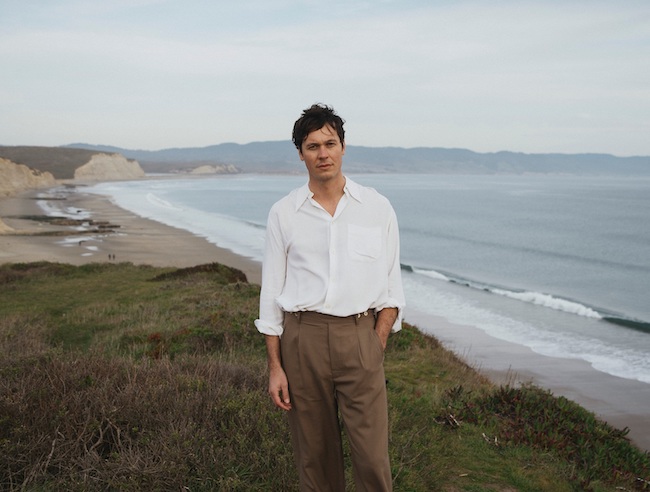
-Your vocals became more mature and passionate in this album. It was very impressive, and it made the lyrics sound even sincere. Especially in “Time to Walk Away” where you sang:“I just wanna know that/ We tried to make it work/ Before just giving up/ Are we just trying/ Too hard?” The sorrow from your voice, was very touching. Can you tell us the story behind making this song?
Ernest Greene : I haven’t written with minor chords (that naturally make the melodies have a melancholic feel to it) in a long time – but I knew that the vocal performance would need to really help aid the storytelling. I’m not a great singer – but luckily with modern recording technology its much easier to edit! The story of the song happened 10+ years ago when my romantic life was a bit more rocky.
-In “Reckless desires”, the lyrics,“You swore that it was over/ You swore that it is through/ But every time time I turn my back/ You find yourself in someone’s bed again/ The lies begin to start/ And our story falls apart”
and the repetition of “I can’t get past the things I did wrong/ Broke your heart now I can’t move on” evoke a sense of haunting. What was the story you wanted to tell in this album? What were the emotions you wanted to convey?
Ernest Greene : Every song on the album is about a different stage in a relationship. “Reckless Desires” is about jealousy and cheating, and “Haunt” is about the aftermath of that – when the song’s protagonist is filled regret and grief. Again, the 80’s pop influence came in here – as its very clear that writers of that era weren’t scared of being melodramatic with the story-telling. I felt the same way with PN – stories needed the drama and bombast and I didn’t want to be afraid to push that as far as I could.
-Many are affected from COVID-19. It’s hard to imagine life beyond. We are stuck in a limbo, nothing is certain, nothing is stable.
In such a time, your audience are staying home in the bedroom, immersing themselves in your tunes. Regardless the circumstances, your music continue to inspire your listeners.
Reflecting this shift, what are your next steps as an artist?
Ernest Greene : Of course, I hope to tour and play shows again soon – but now I’m just settling into an exploratory phase searching out new ideas for my next project. Normally this stage doesn’t happen until a year into touring – but in a lot of ways its my favorite so I’m really looking forward to the clean slate.
text Junnosuke Amai
edit Ryoko Kuwahara
